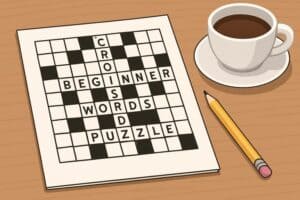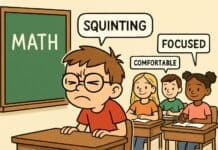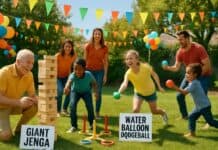Table of Contents
- Start with Simpler Puzzles
- Understand Common Clue Types
- Leverage Crossword Patterns
- Utilize Available Resources
- Practice Regularly
- Join a Community
- Stay Patient and Positive
- Conclusion
Solving a crossword puzzle can be a fun and intellectually stimulating activity, perfect for anyone looking to challenge their mind and expand their vocabulary. If you’re starting, the vast world of crosswords may seem overwhelming, but with the right approach and resources, you can quickly build your confidence and enjoy hours of engaging entertainment. Whether you’re looking for an easy way to unwind or aiming to polish your puzzle-solving prowess, understanding the basics will make each crossword a rewarding experience.
With plenty of beginner-friendly tips and the proper support, you can pick up a crossword puzzle and solve it with a sense of accomplishment. Crossword enthusiasts know that developing good solving techniques and learning what to expect is half the battle—the rest comes with practice and a willingness to learn from mistakes and victories. This guide walks you step by step through essential strategies, puzzle types, and tips to help you tackle crosswords confidently from day one.
Start with Simpler Puzzles
The key to enjoying and learning crossword puzzles is to begin with those designed for beginners. Most reputable publications organize their crossword selection so that the week starts with simpler puzzles—Monday editions tend to be the easiest, gradually increasing in difficulty through the week. These entry-level puzzles introduce you to common clue structures and basic answers, allowing you to get accustomed to how clues are framed and how the grid is filled. As you gain confidence, you can progressively attempt more challenging puzzles that test your growing knowledge and skills.
Understand Common Clue Types
Knowing how to interpret different clues is fundamental for solving crosswords efficiently. There are several standard clue formats you’ll encounter:
- Fill-in-the-Blank: These are some of the easiest clues, often providing an obvious answer. For example, “___ of the party,” the answer is “life.”
- Abbreviations: Watch for signals like “abbr.” or references to organizations. For instance, “Org. for drivers” is “AAA.”
- Wordplay, Puns, and Anagrams: These clues require lateral thinking. They are puns or clues with a twist, sometimes mixing up letters, as in anagrams.
By familiarizing yourself with these clue variations, you’ll be much quicker at deducing answers and filling in key sections of the puzzle grid.

Leverage Crossword Patterns
Recognizing patterns in crossword puzzles can significantly boost your effectiveness as a solver. Frequently used letters, such as “E” and “S,” often appear in answers, which can help you confirm guesses when answers form intersections. Additionally, many puzzles rely on common three-letter words, so keeping a mental list of these can speed up your progress. Sometimes, identifying suffixes and prefixes (like “ing” or “pre”) will help you deduce a partial answer and work inward.
Utilize Available Resources
Don’t hesitate to turn to helpful tools as you improve your crossword-solving technique. Here are some trusted resources:
- Crossword Dictionaries: Specialized dictionaries can help you match word lengths and letter patterns for tricky clues.
- Online Solvers: Digital solvers and apps allow you to input known letters and clue details, assisting when you’re completely stumped.
- Reference Materials: Encyclopedias, general knowledge books, and even quick web searches are useful for trivia-based clues and obscure facts.
Using such resources not only helps you get unstuck but also serves as a learning tool, exposing you to new words, facts, and strategies as you go.
Practice Regularly
Consistent practice is essential for sharpening puzzle-solving skills. Devoting a few minutes daily or tackling a new puzzle weekly will gradually familiarize you with recurring clue formats and solutions. You’ll start to spot familiar answer patterns, expanding your vocabulary and intuition. Like any new skill, steady practice builds confidence and fluency, making each subsequent crossword less daunting and more enjoyable.
Join a Community
Engagement with a community of fellow crossword solvers can be invaluable. Online forums, social media groups, and even local clubs provide opportunities to exchange strategies, discuss tough clues, and share the collective joy of cracking a challenging grid. Community participation introduces you to diverse solving techniques and helps you stay motivated, especially when faced with tough puzzles. The camaraderie of learning and solving together turns crosswords into a social, cooperative adventure.
Stay Patient and Positive
Puzzle-solving can sometimes be frustrating—everyone sometimes gets stuck on a tough clue or corner of a crossword. The best approach during these moments is to step away, refresh your mind, and return with a new perspective. Celebrate your incremental successes, whether deciphering a tricky clue or successfully finishing a puzzle you struggled with. Each challenge builds your resilience and problem-solving skills, making you a better solver.
Conclusion
Crossword puzzles offer lifelong satisfaction for anyone willing to approach them with curiosity and perseverance. By starting simple, understanding the logic of clues, using resources well, and joining a supportive community, you’ll soon find solving crosswords an enjoyable and intellectually rewarding pastime. Remember to be patient with yourself and take pride in every milestone.




